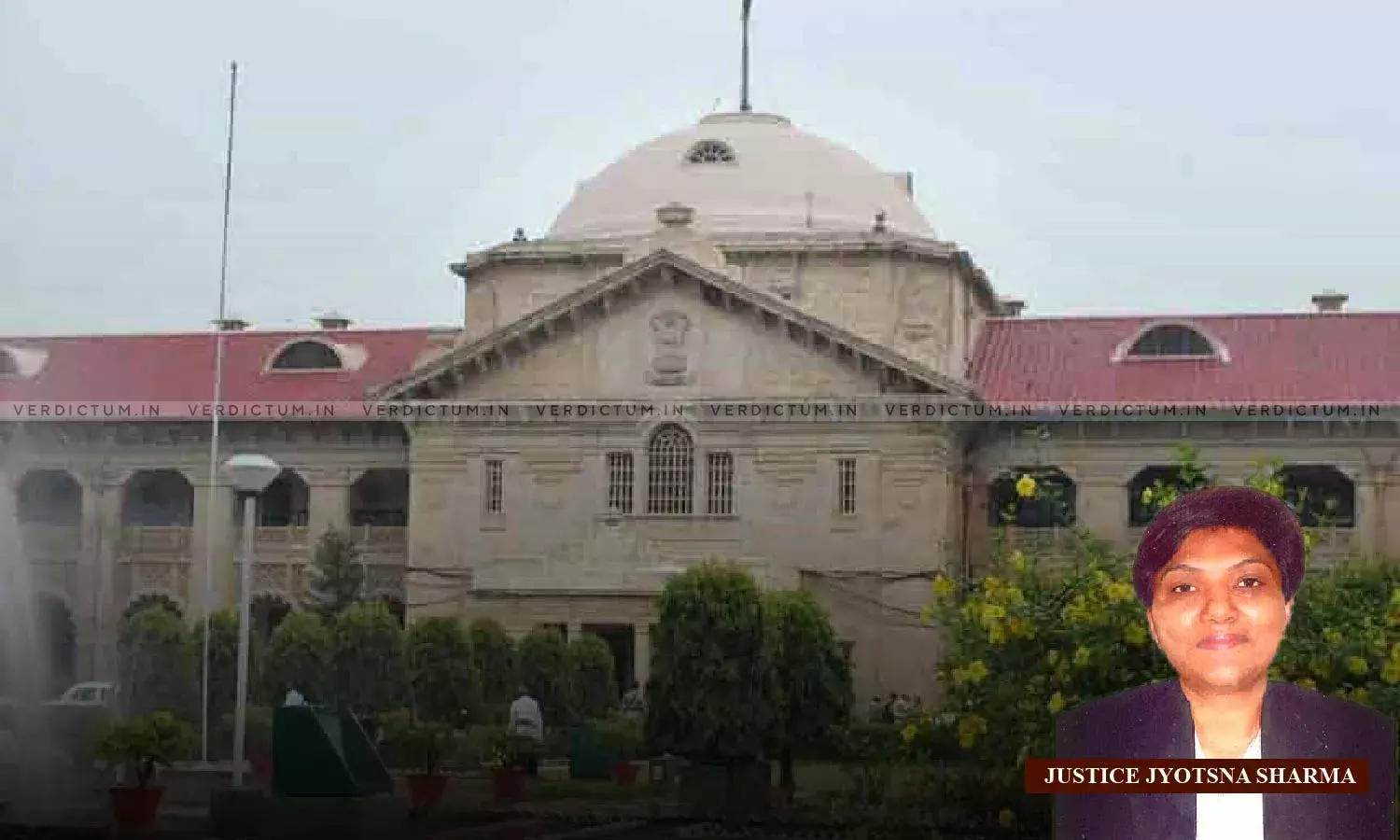Even If Postal Receipt Is Not Produced Court, May Presume Service Of Notice If It Was Sent By Registered Post On Correct Address: Allahabad HC In NI Act Case

The Allahabad High Court in a case relating to the Negotiable Instruments Act, 1881 (NI Act) has held that the Court may presume the service of Notice if the same was sent by the registered post on a correct address, even if the track consignment report is not produced in a case.
A petition under Article 227 of the Constitution was preferred with a prayer to set aside the order, whereby the petitioner was summoned under Section 138 of the NI Act.
A Single Bench of Justice Jyotsna Sharma observed, “In the instant case the trial court seems to have drawn a presumption of law as regard service of demand notice. In my opinion, even if the track consignment report is not filed, the court may presume service of notice in ordinary course of business, if it was shown that the same was sent by registered post on correct address.”
Advocate Sanjay Singh appeared on behalf of the petitioner while Advocate Mahendra Pratap Singh appeared on behalf of the respondent.
Facts of the Case -
The complainant filed a complaint case under Section 138 of the Negotiable Instruments Act against the accused and he produced evidence under Section 200 of Cr.PC. along with the papers. The lower court heard the complainant and summoned the accused under section 138 of the NI Act. The papers which were produced included a cheque of Rs. 2,75,000/-, which was returned by the Bank with a remark of "funds insufficient”.
The revisional court agreed with the order of the trial court and dismissed the revision. The main contention of the petitioner was that the complainant could not show, by producing any evidence that in fact the notice was served on him, therefore, the essential condition for taking cognizance, as provided under Section 138 clause (c) read with Section 142(1)(b) of the NI Act was not fulfilled.
The High Court in the above context of the case noted, “The petitioner has referred to a judgment of Allahabad High Court in Deepak Kumar and Another vs. State of U.P. and Another; 2007 (2) Civil Court Cases 467 (Allahabad). I went through the judgment. In para no. 7, the High Court enumerated essentials which should have been fulfilled before the court could take cognizance of the offence under section 138 of the N.I. Act. It said that in the event of absence of any of the necessary requirements, the offence shall not be made out.”
The Court further said that the controversy which has been raised by the petitioner is set at rest. It, therefore, did not find any infirmity, illegality, or irregularity in the summoning order.
Accordingly, the High Court dismissed the petition.
Cause Title- Top Filling Point Proprietor Rakesh Agrawal v. State of U.P. and Another (Neutral Citation: 2023:AHC:198556)


